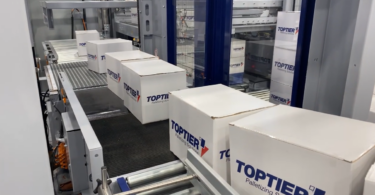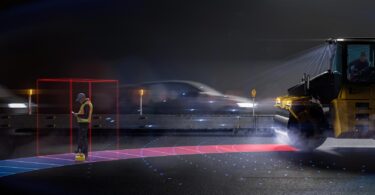University of Pennsylvania Students employ SauberBOT to keep public spaces free of trash in the TiM$10K Challenge
Have you ever been in a public space after a crowded event and noticed how much litter gets left behind? It may blow away or will inevitably be cleaned or moved by city workers, pedestrians, and animals, but this is not an economically viable solution. There is a need to keep our parks clean and well-maintained while also making the task more efficient and less labor extensive.
 The first-place team from the University of Pennsylvania noticed this issue and decided to propose a solution for the SICK TiM$10K Challenge. This challenge gives university students a chance to propose a solution to a real-world problem utilizing SICK LiDAR in any industry. Their application, SauberBOT, is inspired by the German word for clean, and is a robot that cleans smarter, not harder.
The first-place team from the University of Pennsylvania noticed this issue and decided to propose a solution for the SICK TiM$10K Challenge. This challenge gives university students a chance to propose a solution to a real-world problem utilizing SICK LiDAR in any industry. Their application, SauberBOT, is inspired by the German word for clean, and is a robot that cleans smarter, not harder.
Senior university students Aadit Patel, Aadith Kumar, Pranav Shah, Rithwik Udayagiri, and Sharon Richu Shaji collaborated under the advisory of professors Nadia Figueroa, Ani Hsieh, Rahul Mangharam, and Administrative Director Charity Payne to propose, create, and market their application – and they won the challenge.
Developing SauberBOT
After talking to cleaning officials, the SauberBOT team took note of how much work goes behind keeping public spaces clean. They realized that because companies do not have the labor capacity to meet demand, they’re losing revenue. Cleaning large, outside venues is a repetitive and mundane task that no longer needs to be done by humans.
The team was supplied with a 270° SICK LiDAR sensor for object detection. SauberBOT functions autonomously and navigates in a geo-fenced region equipped with a stereo camera that feeds into an AI system, which identifies litter to collect.
“Our goal was to aid humans and not replace them. We want to use the tools of robots and make sure that our day-to-day functions are safer, and our environment is protected. Lots of issues of this kind are ripe for automation,” said Patel, member of the SauberBOT team.
From prototype to product
One of the team’s favorite elements of the challenge was watching their robot go from the ideation phase to a complete prototype design. An overarching theme of the TiM$10K Challenge is innovation, giving students a chance to see an entire project through from start to finish. This challenge offers something that students may not have previously had the opportunity to do.
“The biggest impact would be the designing aspect of our product from the ideation phase to productive prototype. This was a good industrial scale to be cognizant of the market requirements and design and how you can engineer a product that is cheap and caters to the market demand that you’re aiming to enter,” said Shah.
Not only do students have to design an application, but they also need to think about how to market it, handle the financial aspect and budget, and make it affordable.
“Another big impact to designing our application was handling finance and logistics and the market research phase. As engineers, we often look on the technical side and are told what our projects are and what we must work on. Having the experience to reach out to professionals and network was something that we don’t usually get the opportunity to experience,” said Richu Shaji.
Future plans
The team is going to continue to keep the SauberBOT in the back of their minds with continued improvements and modifications that can be made in the future. If they had a longer timeline, they would have tried to adapt their design to different variants.
“Right now, we are exploring the prototypes, seeing its viability in the long run, spending time talking to professionals, and further understanding where we can make improvements,” said Udayagiri.
When asked what the biggest piece of advice they would give to future TiM$10K participants, they emphasized the importance of asking questions and that it is normal if the product is not developing as originally thought.
“My biggest piece of advice would be to understand that a prototype is often a barely working project. Things could have been done differently but the initial ideas were always there. The technical part is important, don’t get caught in the perfection of the prototype but the beauty behind the engineering,” said Patel.
The team won $10K for their innovative solution and will go to Germany to visit SICK’s global headquarters. Public spaces can now be cleaned with the help of SauberBOT.










